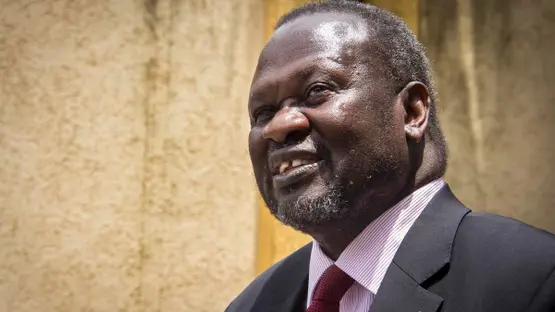South Sudan’s political landscape was shaken on Thursday after Justice Minister Dr. Joseph Geng Akech announced that opposition leader and First Vice President Dr. Riek Machar has been formally charged with treason, crimes against humanity, and murder.
The charges stem from alleged involvement in attacks by the White Army militia on government barracks in Nasir, Upper Nile State, earlier this year. Authorities say the White Army, comprised largely of armed Nuer civilians, carried out deadly raids that prompted a months-long investigation.
Indictments Announced
Minister Geng confirmed that a total of 21 individuals were indicted, with eight formally charged and 13 still at large. Among those charged alongside Machar are:
• Puot Kang Chuol, Minister of Petroleum
• General Gabriel Duop Lam, Deputy Chief of Staff
• Mam Paul Dhuor
• Gatwech Lam Puoch
• Camilo Gatmai Kel
• Dominic Gatrgot Riek
The accused face a wide range of allegations, including conspiracy, terrorism, financing terrorism, destruction of public property, and crimes against humanity.
“The accused have been informed of the charges and their constitutional rights, including the right to a fair trial and legal representation,” Geng said, stressing that the proceedings will follow both domestic and international legal standards.
Civil Society Response
Civil society leader Edmund Yakani, a signatory to the 2018 peace deal, welcomed the emphasis on accountability but voiced concerns over potential bias.
“My appeal is that the trial should be handled by a competent court of law, not a kangaroo court. It must be open, transparent, and respect due process,” he said.
Political Implications
If the trial moves forward, Machar could be dismissed from his position as First Vice President, a role he has held since the signing of the 2018 peace agreement with President Salva Kiir. That deal ended a five-year civil war which claimed an estimated 400,000 lives, but many of its key provisions—such as security sector reforms, a permanent constitution, and elections—remain unfulfilled.
Machar’s detention earlier this year also deepened divisions within his SPLM-IO faction. In April, a breakaway group led by Peacebuilding Minister Stephen Par Kuol declared an interim leadership aligned with Kiir, while Machar loyalists rejected the move.
Observers warn that the case could further complicate South Sudan’s fragile peace process, with national elections still pending and growing fears of renewed instability.



